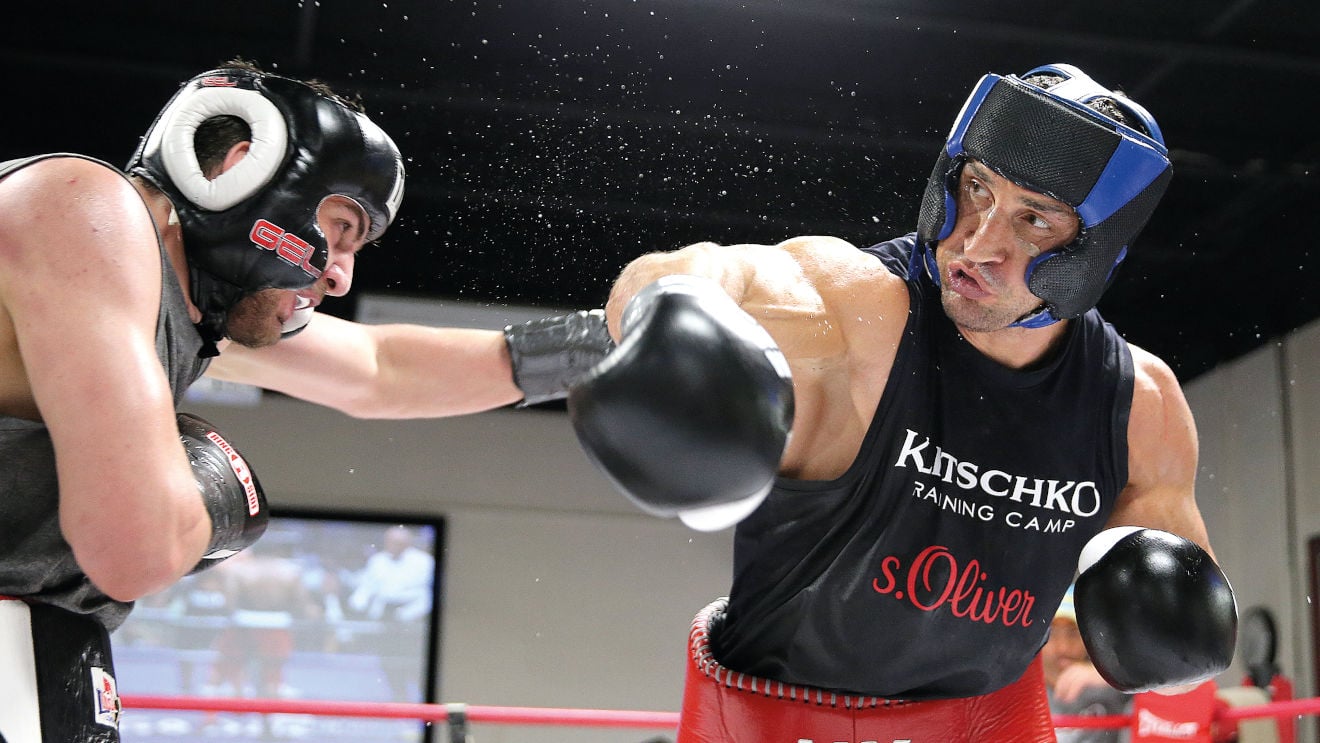By Elliot Worsell
IF there is any truth to the theory that we are the average of the five people closest to us, it is imperative a boxer chooses not only their coaches wisely but also their sparring partners. These, after all, tend to be the people with whom a boxer spends the majority of their time before a fight, at least in a competitive sense, and the people against whom their progress will ultimately be judged. They are the moving, thinking, punching punch bags. They are the imitators of style. They are crucial to the dress rehearsal.
Should a boxer spar too often there’s a danger of too much damage being done and too much fight being left in the gym. Spar infrequently, however, and there’s a danger of them turning soft and poor timing becoming both an issue and an excuse. It’s a balancing act tough to perfect, something that can also be said for the process of selecting sparring partners. An easy spar, for instance, will boost confidence but will invariably come at a cost likely to reveal itself on fight night when the boxer realises he has for several weeks benefited from a false sense of security. Then again, should a boxer endure constant heavy sparring against high-class and heavy-handed operators there’s every chance they will turn up on fight night a shell of their old self, confidence shattered and durability depleted.
Twelve years ago, told I had an eye for it, I was for a couple of years tasked with identifying and occasionally booking sparring partners for a British world champion and discovered in the process that variety is indeed the spice of life. On the job I learned, quickly, that for every enthusiastic up-and-comer like Deontay Wilder, or brick wall like Mariusz Wach, you would find an American heavyweight who, though resilient and light-hitting (two boxes ticked), would fib when asked if they were in training and, for a price of 900 dollars a week, arrive two stone above their fighting weight and fit only for three rounds. Or, worse than that, you would get a future European heavyweight champion show up not wanting to throw a punch, then start questioning his decision to box altogether. Or, worse even than that, you would get a pale-skinned Ukrainian, selected due to his stature, arrive in north Cyprus and sunbathe all afternoon, only to realise the next day he was so severely sunburnt he couldn’t wear his sparring gear, let alone face the thought of being punched.
The ideal scenario, I suspect, is to not take chances but instead reach the point where a boxer and coach have a pool of reliable sparring partners they have used before and can trust. These might be novices or they might be seasoned contenders. They might even be career sparring partners, that is, boxers for whom sparring is a full-time job; boxers able to leave their ego in their kitbag and give a bigger name precisely what it is they need for their upcoming fight.
Muhammad Ali in training for his world title fight against Sonny Liston of the USA at Miami Beach, Florida (Harry Benson/Getty Images)
One such boxer was Sergej Rozvadovskij, a now-retired light-heavyweight from Lithuania who for many years was the go-to sparring partner for world champions like George Groves, Mikkel Kessler, Gennady Golovkin and Arthur Abraham. As well as reliable, both in the sense of turning up on time and providing as many rounds as a boxer wanted, Rozvadovskij, 6-1-2 (5), was a gifted mimic, capable of playing whatever role was needed, and as tough a sparring partner as I have ever watched. He sacrificed not only his own wellbeing but also his own professional career to become a helping hand, a decision he made, curiously, not long after securing his biggest win.
“It happened probably after I beat Thomas Ulrich (in 2011),” Rozvadovskij said of his switch from pro fighter to pro sparring partner. “All the managers in Germany said it was a very good result but, on the other hand, said everybody would be afraid of me now. He was a European champion who fought for the world title twice. I kicked his ass and was told I wouldn’t get many more fights after that. The next fight was something like 18 months later and you cannot fight once a year and expect to survive. That’s when I decided to become a sparring partner and make money that way.”
The switch, at the time, made sense for Rozvadovskij. He was a man in his twenties with no partner and no children and knew, if he remained both reliable and durable, he could potentially make more money going from camp-to-camp sparring than he could boxing professionally in Germany, Latvia or his native Lithuania.
… [Rest of the content remains the same]
